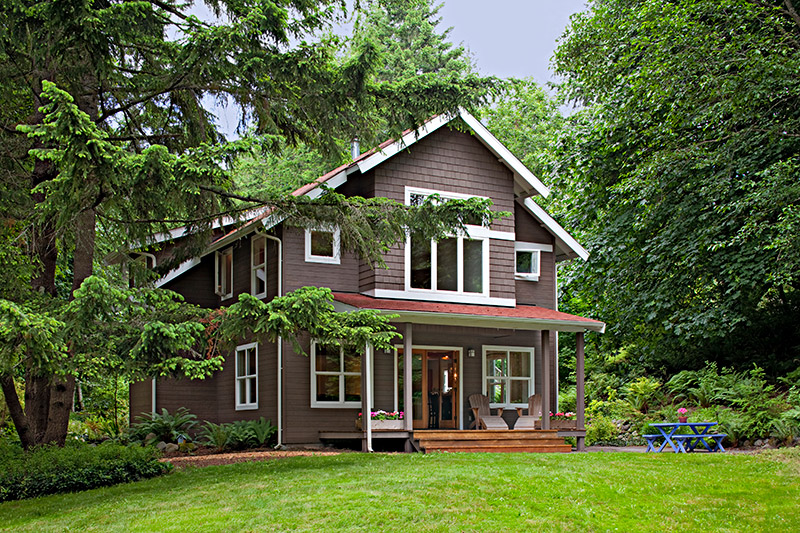Deciding between renting and buying a home is one of the most significant financial decisions many people face. With fluctuating home prices, interest rates, and rental costs, the right choice isn’t always clear. Factors like your financial stability, lifestyle preferences, and long-term goals play a crucial role in making this decision.
In this article, we’ll break down the pros and cons of renting vs. buying a home in 2024, considering the current market trends, and help you decide which option is more convenient for your situation.
Current Housing Market Trends in 2024
Rising Mortgage Rates
As of 2024, mortgage interest rates remain elevated compared to previous years, increasing the overall cost of homeownership. Higher rates mean higher monthly payments, especially for buyers with average or low credit scores.
Skyrocketing Rental Prices
While buying a home is more expensive upfront, rental prices in many cities are surging, leaving renters with fewer affordable options. However, renting can still be the more affordable choice in areas with slower price growth.
Renting a Home: Pros and Cons
Pros of Renting
- Flexibility: Renting allows you to move easily without the burden of selling a property.
- Lower Upfront Costs: Security deposits and first-month rent are significantly cheaper than a down payment and closing costs.
- No Maintenance Responsibility: Landlords typically handle repairs and maintenance.
- Protection Against Market Fluctuations: Renters are not directly affected by changes in property values.
Cons of Renting
- Lack of Equity: Rent payments don’t build ownership or wealth over time.
- Rising Costs: Rental rates can increase yearly, often outpacing inflation.
- Limited Control: Renters can’t make significant changes to the property.
- Instability: Leases may not always be renewed, leading to forced moves.
Buying a Home with a Mortgage: Pros and Cons
Pros of Buying
- Building Equity: Mortgage payments contribute to homeownership and increase your net worth.
- Long-Term Investment: Real estate often appreciates over time, providing financial benefits.
- Stability: A fixed mortgage ensures predictable housing costs, unlike fluctuating rent.
- Freedom to Customize: Homeowners can renovate and decorate without restrictions.
Cons of Buying
- High Upfront Costs: Down payments, closing costs, and initial maintenance expenses can be prohibitive.
- Responsibility for Maintenance: Homeowners are responsible for all repairs and upkeep.
- Market Risks: Property values can decrease, leading to potential losses if you need to sell.
- Less Flexibility: Selling a home is time-consuming and costly if you need to move quickly.
Key Factors to Consider When Deciding
1. Your Financial Situation
- Renting: Ideal if you lack savings for a down payment or have unstable income.
- Buying: Suitable if you have a steady income, good credit, and savings for upfront costs.
2. Duration of Stay
- Renting is generally better for short-term stays (less than 5 years).
- Buying becomes advantageous for longer stays, allowing you to build equity.
3. Location
- In high-cost areas, renting might be more affordable.
- In regions with lower housing costs, buying may be more economical.
4. Lifestyle Preferences
- If you value mobility and low responsibility, renting is a better fit.
- If you prioritize stability and customization, homeownership is preferable.
Renting vs. Buying: A Cost Comparison
To illustrate, let’s consider an example of renting vs. buying a home in a mid-sized city:
| Category | Renting | Buying (with a Mortgage) |
|---|---|---|
| Monthly Payment | $1,500 | $2,100 (mortgage + taxes) |
| Upfront Costs | $3,000 (deposit) | $40,000 (down payment + fees) |
| Annual Appreciation | N/A | 3–5% of home value |
| Maintenance Costs | Covered by landlord | $3,000/year |
| Flexibility | High | Low |
Note: Mortgage payments contribute to equity, while rent payments do not.
When Renting Is More Convenient
- You’re not ready for long-term financial commitment.
- You prioritize mobility and lifestyle flexibility.
- Current rental costs in your area are significantly lower than buying.
When Buying Is More Convenient
- You have the financial stability to cover upfront and ongoing costs.
- You plan to stay in one place for an extended period.
- You want to invest in a property and build equity over time.
FAQs
1. Can I save more money by renting instead of buying?
It depends on the local market and your financial goals. Renting often has lower short-term costs, but buying can lead to long-term savings through equity and appreciation.
2. How do I know if I can afford a mortgage?
Calculate your debt-to-income (DTI) ratio and consider other costs like property taxes, insurance, and maintenance.
3. Is renting wasting money?
Not necessarily. Renting provides flexibility and can be a smarter financial choice if buying is unaffordable or impractical for your situation.
Final Thoughts: Which Is More Convenient for You?
The decision to rent or buy depends on your financial health, lifestyle, and long-term plans. Renting offers flexibility and fewer responsibilities, making it ideal for those not ready for a permanent commitment. On the other hand, buying can be a valuable investment for those with financial stability and a desire for homeownership.
Evaluate your situation carefully, considering both the short-term and long-term implications of your choice. Whichever path you choose, making an informed decision will set you up for success.
For more tips on managing your finances and navigating the housing market, subscribe to our blog and stay updated with the latest trends!


